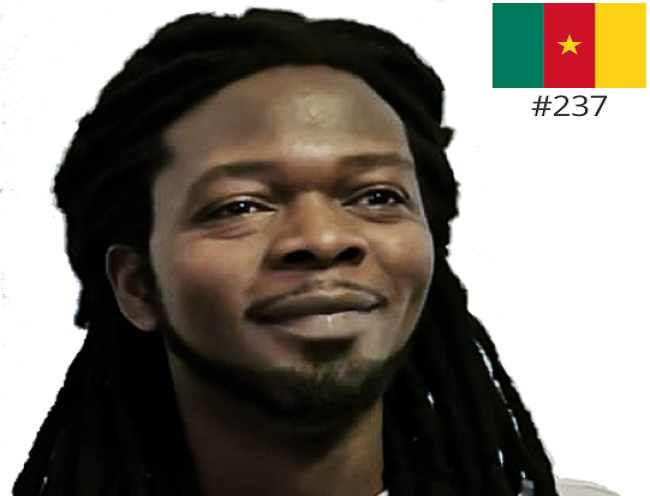Why do some Africans, Afro-Caribbean immigrants reject psychiatric help in Europe?

Fokumlah Nchungong
By Fokumlah Nchungong
Saying goodbye to your family and embarking on an uncertain adventure is always a bitter-sweet emotional waterfall. The journey to Europe is always unique for every African. The reason for traveling varies. From economic migrants, educational purposes, political escapes, societal discomfort,… and so on. The path to arrive at the “Eldorado” is never the same for the adventurers. Both legal and illegal possibilities are exploited. The main objective is the final touch-down in Europe.
Integrating into the adoptive country is usually very slow. Everything is new and strange. Even the stories and images one had heard seem distant from reality. Most often, isolation and loneliness settles in. It is somehow the first time that most would have a taste of depression.
The tolerance ratio of depression in most of our African, Afro-Caribbean countries are minimal. It is not even a consideration. Life in most instances had always been a struggle from birth. Responsibilities started accumulating at a very tender age. Some people even had to raise themselves to adulthood without elderly guidance. You cannot be depressed. It is everywhere and it’s just but normal to shred it off your thoughts. The ‘silent killer’, but “you have to suck it up!” as they say. Depression is equated to weakness/laziness. It is by no coincidence that migrants from Africa, the Caribbean, parts of Asia, South America and more, living in Europe, specifically Sweden, don’t even want to talk about it or take it seriously when the effect starts becoming very visible.
Ok, it is just in the beginning. It would be nice to navigate some background checks.
Most often, the majority of Africans, Afro-Caribbean’s who migrate here, have never been to a psychologist/psychiatrist. Even those who have been, never talk or want anyone to know about it. Multiple mental hindrances like bi-polar, ADD, ADHD, borderline, manic depression were sidelined to be: stubbornness, clumsiness, selfishness, stupidity and to some extent, categorized as someone being possessed by an evil spirit. Millions have been growing up with undiagnosed mental illnesses, but the irrelevance attributed to mental care gave them no options than to adapt and adjust (without treatment) in order to be functional in the society. There have been thousands of suicidal cases but mental health issues were seldom tabled as a factor of concern.
Adapting to the mental illness was instinctive and the society was amicable enough for most people to even forget or easily manage their difficulties. The dynamics are absolutely different here. Support mechanisms in relation to friends, family, and acquaintances are very minimal here. The solitary-living standards are quite strange to the migrants. Mental symptoms quickly emerge, but the courage to expose these ills are still lacking. Thus, many migrants are mentally degrading without a request for assistance. Effects are often unpleasant.
PTSD is rampant with most migrants. The experiences from violent incidents like wars, civil unrests, imprisonments, gang violence, gorish accidents, treacherous voyages to get to Europe (desserts, forests, rivers, sea, etc.) have everlasting traumatizing scenarios which remain cemented in their minds. Unfortunately, getting help on arrival is not always the priority. The effects are always there and the manifestations vary from person to person.
Most immigrants will eventually integrate into the European society (Sweden as my reference). They will create new acquaintances at schools, workplaces, intimate love relationships and friendships. They might have been settling down physically but their mental state is still unsettled. They miss home! As time goes by, many continue to receive sad/bad news from home. Parents die; siblings get sick, intimate acquaintances get in trouble, -all kinds of trouble. People need help.
The pressure for the immigrants to assist is on a constant rise. Worst still, many are unable to travel back home to pay their homage/farewell or last respects to dead loved ones. The depression is real and deep. No matter how they try to explain themselves to anyone here, nobody can fully understand their hurting hearts. Some turn to alcohol and drugs to numb those sad feelings. It is sinking sand. After prolonged periods of self-medication with substances, addictions take control. They are low in spirit. Their souls bleed.
Unfortunately, relationships had already been created here and the manifestations of mental disturbances become evident. – Why is he/she always acting like that?; – He/she is always angry; – He/she is talking/crying in their sleep; – It seems as if he/she sometimes is blacking out; – He/she is very insensitive; – Never cares; – Egocentric; – Always shouting; – He punched me; – He/she is verbally abusive; – Our child is scared of him/her; – I can’t trust him/her to be alone with our children; – It’s better we live apart; – I can’t handle this; – I just don’t understand him/her; – I know he/she has some issues; – The police has been to our apartment several times; – Lets separate; – Let’s divorce; – WOW, damn! I just don’t know.
Help is available, but it is a tricky situation convincing them about seeking assistance. A majority end up in psychiatric wards when a lot of damage has already been done; sometimes fatal. Who do we blame? Are you responsible for not getting involved in the beginning when you notice some symptoms? There is always a way out! To my fellow immigrants from far and wide, seek help! It is humble.
“Being a lone soldier at the battlefront is heroic, but calling for backup will save your life”

